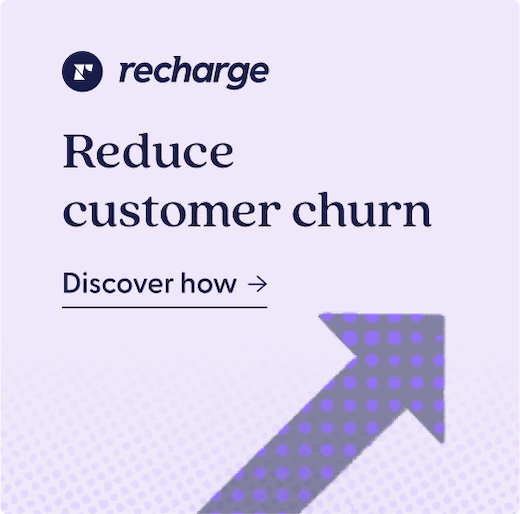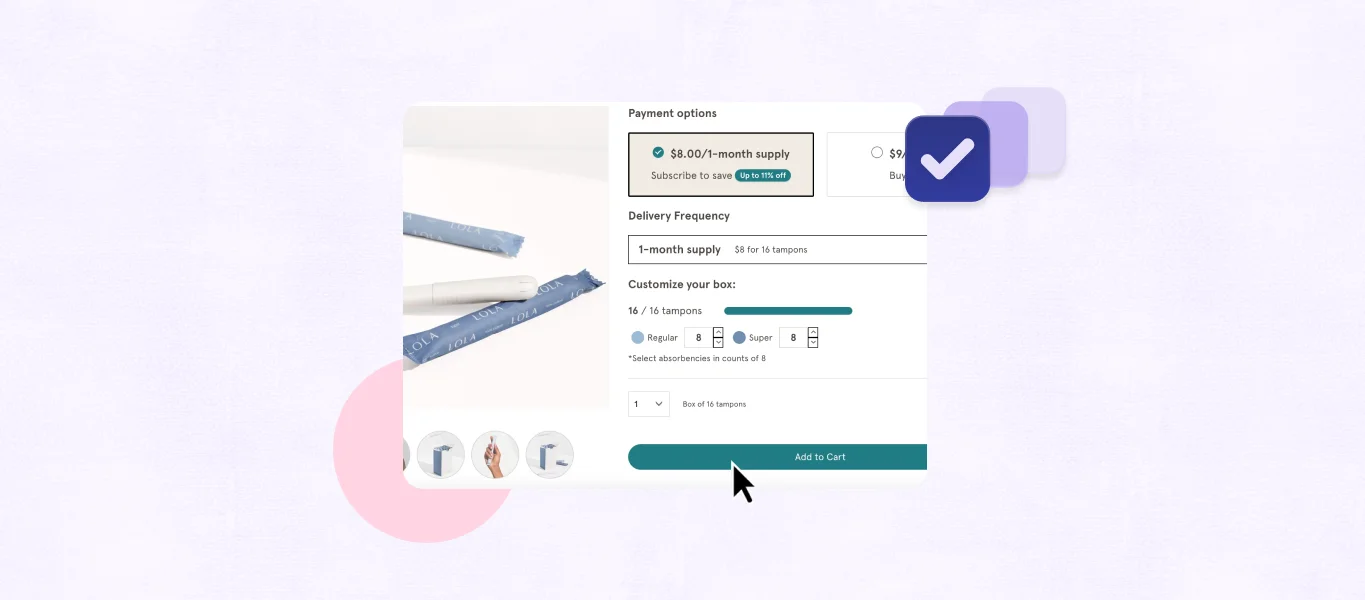In the past three years, we have seen a massive boom in the ecommerce subscription space. By 2023, ecommerce-driven subscriptions are expected to generate more than 38 billion dollars in revenue. To put this into perspective, that is more than double the amount of revenue driven in 2019.
The increased traction for subscription-based models will only continue to grow. 54% of online shoppers are active subscribers who, on average, hold at least five retail subscriptions.
What does this mean? In the simplest of terms, the push for DTC merchants to implement subscriptions into their framework is paramount. That being said, just offering your customers subscription options isn’t enough—merchants need to have a thoughtful strategy in place.
In this blog, we will discuss how you can determine what kind of subscription plans fit your customers’ needs, and how yearly subscriptions can be a powerful revenue generator for many businesses.
The types of subscriptions
Before we get into the weeds here, it’s important to understand the different types of subscription models so you can choose what works best for your business.
Curation, replenishment & access subscriptions
Recharge does a great job at breaking down the different subscription types, but to briefly touch on the topic, there are three main categories of subscriptions:
- Curation subscriptions (e.g. Blue Apron): Here, subscribers receive an assortment of products, generally tailored to fit a certain theme.
- Replenishment subscriptions (e.g. Smartypits): Here, subscribers receive recurring deliveries of specific products or services that they use on a regular basis.
- Access subscriptions (e.g. Savage X Fenty): Here, subscribers pay for access to exclusive perks, products, or gated content.
Each subscription type can be offered on either a monthly or annual pricing model. Each revenue driver has its own pros and cons for both your brand and the customer.
Monthly subscriptions
The monthly subscription model is a great way to increase customer loyalty and keep your customers coming back for more. It provides an easy way for your customers to try new products, and allows your business to track customer spending patterns over time.
Because orders repeat on a monthly cadence, this model also offers regular, built-in touchpoints to connect with your customers about their orders, which can lead to increased customer engagement.
Of course, monthly payments aren’t a fit for every product type or customer base. Depending on the unique needs of your business and subscribers, it may be worth considering offering an annual contract to increase customer lifetime value and reduce churn.
Annual subscriptions
Annual billing can also provide a number of advantages for your customers and your business, including increased customer loyalty, increased sales, and easier and more accurate inventory management. Yearly subscriptions are also high revenue generators: By offering your customers the option of paying annually instead of monthly, your business will receive a larger sum of money upfront. This allows you to have a more predictable stream of recurring revenue, which is incredibly important for any business looking to expand.
However, people who are trying out your company’s products or services for the first time may also be reluctant to commit to an annual subscription, causing potentially high barriers to entry.
For most of our readers on this post, your business may already have a subscription model in place. You may be thinking, how do we convert our monthly subscribers to an annual plan?
Moving customers from monthly subscriptions to annual
Moving your customers to annual subscriptions can help improve both retention and cash flow for your business. To do this successfully, here are a few of many questions you should be asking yourself as you map out your strategy:
- Do I have the right digital framework?
This simply means making sure your digital framework offers a seamless experience for users when trying to upgrade to annual plans. Taking it a step further, it also requires you to dig into your site and apps capabilities. Are they enhanced and capable of handling plan upgrades?
- When will I initiate the upsell?
Understanding your customers’ purchasing behavior is key to knowing when to initiate an upsell. One of the biggest drivers to move to an annual subscription plan is based on a large discount on the annual fee. When mapping out when you plan to push an upsell, keep in mind that upsells typically take place right at purchase or later on via email.
- Is there a subscription marketing plan in place?
Have a marketing strategy mapped out based on tactics that speak to your customer base, whether you are using influencer marketing, email campaigns, social media, special offers, or a combination of them all. During this time, craft your messaging to speak to what differentiates your products from your competitors.
Final thoughts
When done effectively, increasing your annual subscription count by converting monthly subscribers to annual can not only increase your upfront cash flow, but also improve long-term customer retention. This means more time to nurture customers to get them to renew.
As you continue to map out your strategy, remember that although there are many benefits to pushing annual subscription plans, you should be prepared to address some key considerations. These include high barriers to entry and less built-in opportunities to engage with your customers.
Regardless of the model you end up choosing, subscriptions in the ecommerce space are a journey of learning what works best for your business model and your customers. To keep your customers with your business, there should always be learning and adjusting taking place. Good luck on your subscription journey!



